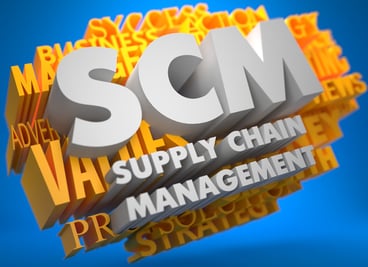New Horizons for Supply Chain Management Startups
The global supply chain is truly enormous - and yet, it remains sensitive to disruption. Statistics show that up to 22% of managers are willing to embrace new models to boost chain resilience. Could the answer lie in startups and innovators working purely in chain reinvention? New funding opportunities are appearing thick and fast - and robotics may hold the answer to chain-based headaches.

Supply Chain Management Funding
Funding for supply chain management startups is at an all-time high. Data shows over $11 billion found its way to disruptors and innovators in the niche in 2021. This, reportedly, is a marked increase from investment in 2020 and 2019. Interestingly, while more deals were made in 2019, the total value was $2 billion less than in 2021.
Global challenges experienced since 2020 have effectively altered expectations for supply chains worldwide. As McKinsey & Company reports, chain managers have switched focus completely to help support recovery. Their data also shows that willingness to reform differs from industry to industry. For example, healthcare operations led the way to change measures to assure more agile survival post-2020.
Supply chain managers need to consider more than purely maintaining peak efficiency. Are there ways to delegate human tasks to AI or robotics? Could supply chain gaps be avoided with more reliable inventory checks and measures? Perhaps it is even possible that efficiency could increase by embracing technology - crucially, that’s what ventures are striving for.
As of February 2022, data shows that funding is flowing into innovators willing to help facilitate these changes. Almost $2 billion found its way to supply chain ventures post-holiday. Statistics show, overwhelmingly, that investors are willing to put more money into supply chain innovators than ever. Real-time data on said firms will, naturally, prove this even further.
The $1B Amazon Robotics Fund for Startups
As of April 2022, Amazon announced a new initiative to purely fund ventures in supply chain logistics. The Amazon Industrial Innovation Fund, or AIIF, is worth $1 billion - though it remains unclear how many companies may benefit.
Thus far, the AIIF has directly funded innovators working with walking robots, automation, and robotic sensors. Reports also show that Amazon is interested in wearable technology and inventory management solutions. It’s clear the fund’s aim is to cater to all sides of the supply chain - from worker safety to consumer expectations.
AI, in particular, appears to be driving specific interest. This is on the back of reports indicating decreasing costs through adoption in supply chains. Furthermore, statistics also indicate revenue gain is likely through AI delegation in this sector.
Who is Amazon Investing In?
Amazon has reportedly invested in up to five companies as part of its supply chain initiative thus far. Three, however, are mainly dedicated to robotics. The three ventures below are similar in that they anticipate robotic assistance helping boost chain efficiency and soothe pain points.
Agility Robotics
Agility Robotics, headed by CEO Damion Shelton Ph.D., is based in Albany, OR. Their focus is on ‘building robots for good’ - and to support human initiative. In particular, their walking and carrying robots have picked up much interest thus far.
AR’s robots are able to walk, pick up and carry items and packages across warehouse spaces for ease of distribution. This allows for seamless integration with human operations - and can help increase safety in the workplace. Beyond this, AR are also deploying robots to walk the last mile - to deliver items directly to customer doors.
This could potentially remove the need for last-mile logistics - on a human scale - if widely adopted. As such, the firm is notable for being one of Amazon’s first picks for the AIIF.
BionicHIVE
BionicHIVE, based in Israel, caters to a common pain point for willing yet unable adopters. Their technology, revolving around their SqUID robot, allows for robotic assistance to fit into existing setups seamlessly. This is retrofitting - thus, upgrading existing warehouse and fleet operations without the need for major new systems.
BionicHIVE’s technology can help to pick, replace and even learn about existing operations on-site. Therefore, such technology could help long-established chain businesses adapt to robotics and AI with renewed efficiency. This may be a welcome touch for company managers who feel forced to keep pace with technology.
Essentially, the company aims to remove ‘barriers to automation’. Therefore, BionicHIVE technology seeks to see all warehouses move into an AI-centric future.
Mantis Robotics
Mantis Robotics focuses, too, on blending human and robotic efforts together. Mantis innovations helps warehouse processes to pick, move and adjust inventory on demand. Their robots are built to fit with ease and possess sensors to help enhance safer operation all around.
Mantis also advises that their technology is designed to offer deployment without code. Therefore, much like BionicHIVE, their standards fit entry-level use and demand. Based in San Francisco, the company has been selected by the AIIF for its intuitive scalability.
The company asserts that its landmark robot is the fastest and safest of its kind in industrial support. The potential for deployment and support across various industries could extend globally. It will be interesting to see how their Amazon funding supports the firm further.
Conclusion
The global supply chain impacts a vast array of businesses and operations - and millions of customers. Slowdowns and disruptions are immensely costly. In fact, it is estimated that the chain lost the US an average of $228 million in 2021 alone. This compares to a global loss of around $184 million elsewhere.
Therefore, it is clear why there is increased enthusiasm for helping to ‘heal’ the chain. Amazon’s latest funding initiative may help bring AI and robotics to businesses struggling to keep up. What’s more, those funded by Amazon may even help to revolutionize end-to-end service delivery for good.
Insight suggests that the supply chain may ‘normalize’ by the end of Q4 2022. Regardless, it’s clear the chain requires greater protection in the event of further global catastrophe.